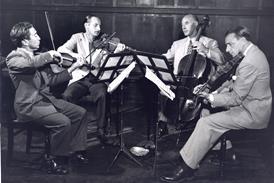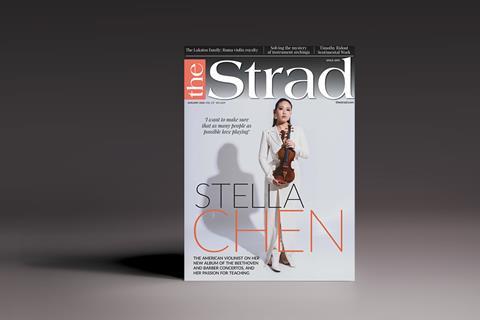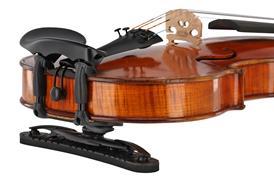- News
- For Subscribers
- Student Hub
- Playing Hub
- Directory
- Lutherie
- Magazine
- Magazine archive
- Whether you're a player, maker, teacher or enthusiast, you'll find ideas and inspiration from leading artists, teachers and luthiers in our archive which features every issue published since January 2010 - available exclusively to subscribers. View the archive.
- Jobs
- Shop
- Podcast
- Contact us
- Subscribe
- School Subscription
- Competitions
- Reviews
- Debate
- Artists
- Accessories
Steven Isserlis: Instinctive performer

Steven Isserlis used the lockdowns of 2020 and 2021 to work on a trio of projects: a companion to Bach’s Cello Suites, a new performing edition of Dvořák’s Cello Concerto and a recording of British solo cello music – as the cellist tells Charlotte Smith
British cellist Steven Isserlis isn’t ‘just’ a musician; he’s a scholar too. While some of us failed to put the lockdowns of the past two years to good use, Isserlis completed several projects, without which, he admits, he would have gone into a ‘complete depression’. The first of these is his companion to Bach’s Cello Suites, recently published by Faber (and reviewed next issue): a highly readable pocket-sized volume, cleverly featuring important detail and advice for professional musicians while also providing clear, accessible and, above all, interesting insights for novices.
Key to the companion’s success is the great affection and reverence that Isserlis himself has for the Suites. Famously reluctant to perform the works in public for fear of memory slips – ‘I should shut up about that really; I’ve now managed to make my friends Thomas Demenga and Mischa Maisky petrified about it too!’ – Isserlis is entirely committed to investigating the intricacies of the four existing manuscripts. Not one is written in Bach’s own hand, which makes the quest to find a definitive version all the more compelling – and no doubt accounts partly for the otherwise venerable and confident musician’s fear of performing the works for an audience. ‘Basically, I practise the Suites from memory,’ he says. ‘But then I want to continue studying the manuscripts – and remembering the notes is one thing, but remembering all the articulations in four different versions is another!’
That the lockdowns afforded Isserlis the chance to devote his keen investigative talents to the Suites is great news for audiences and musicians – for although it’s unlikely the majority of us will be treated to a public performance by him any time soon, the companion presents his attitude to the works in an equally compelling form, especially when enjoyed in conjunction with his recording of the works released on Hyperion in 2007. And in fact, it was lockdown’s ability to strip performing of all its usual anxieties and expectations that enabled Isserlis to perform Suites nos.1 and 3 for the first time in years for small audiences at the Fidelio Cafe in London in July 2020. ‘At Fidelio, the audience comprised just 25 people and their mindset was different from usual,’ he says. ‘People hadn’t heard live music for so long, and were so happy and grateful for the experience, so there wasn’t any pressure.’…
Already subscribed? Please sign in
Subscribe to continue reading…
We’re delighted that you are enjoying our website. For a limited period, you can try an online subscription to The Strad completely free of charge.
* Issues and supplements are available as both print and digital editions. Online subscribers will only receive access to the digital versions.




























